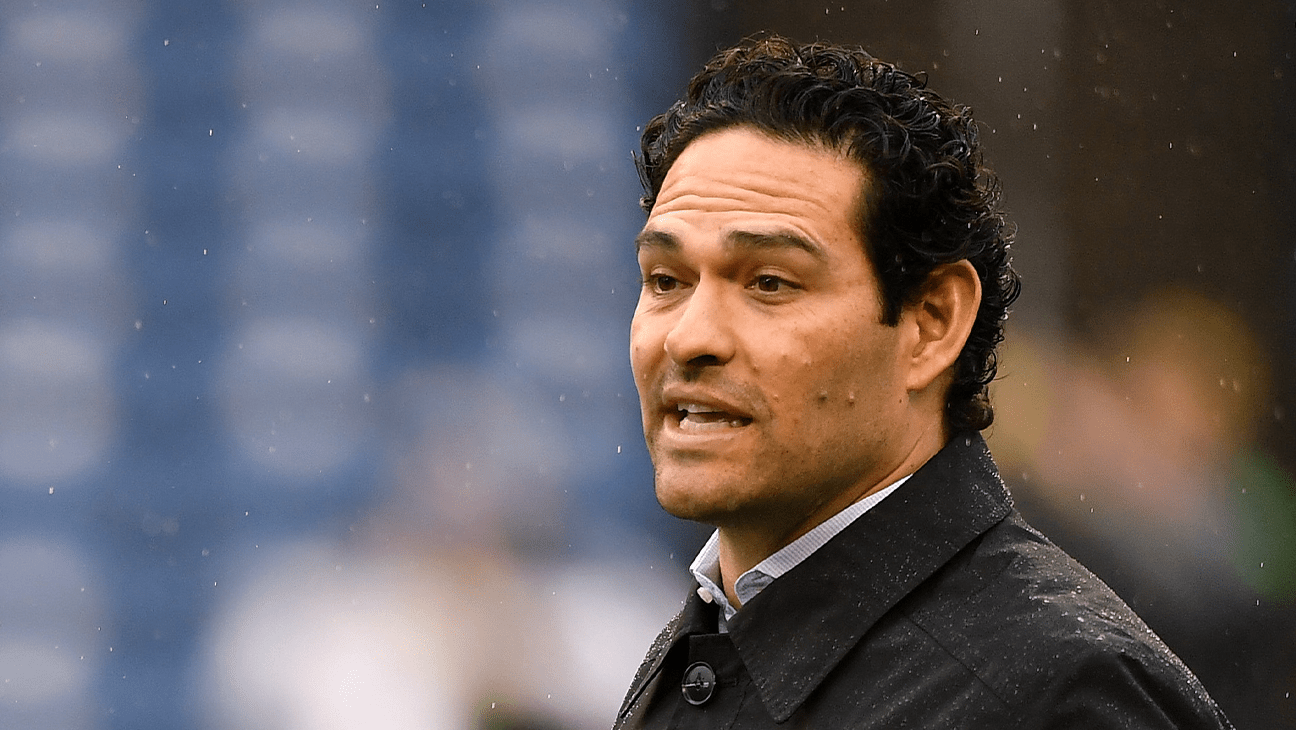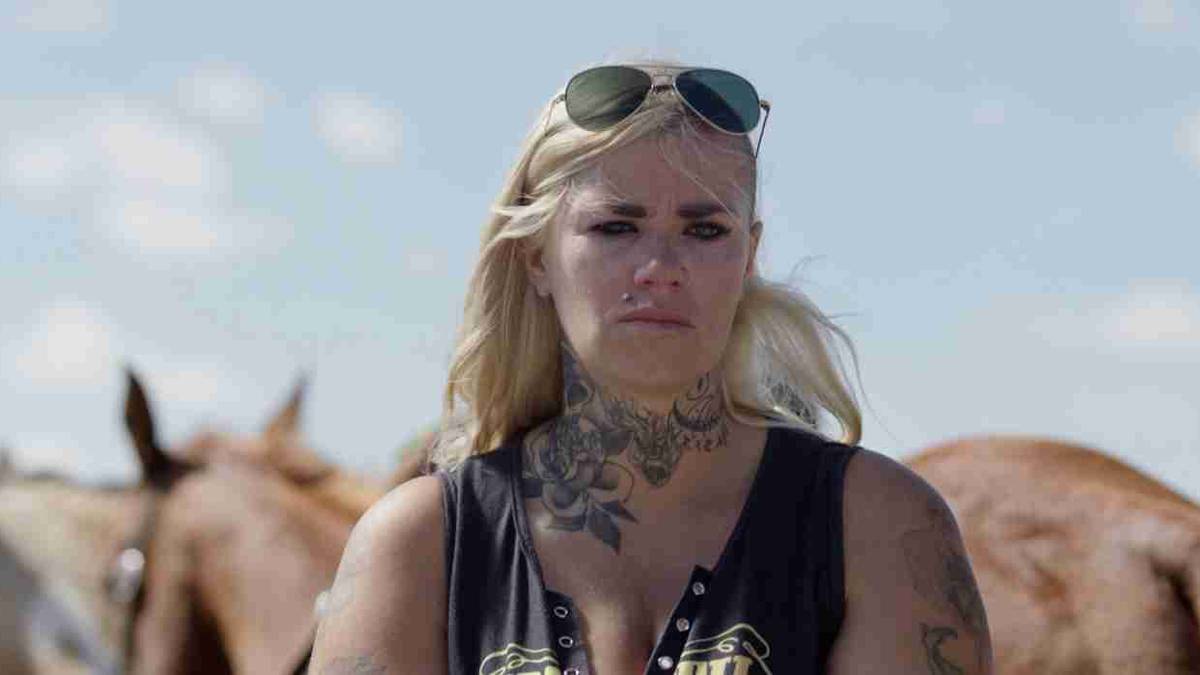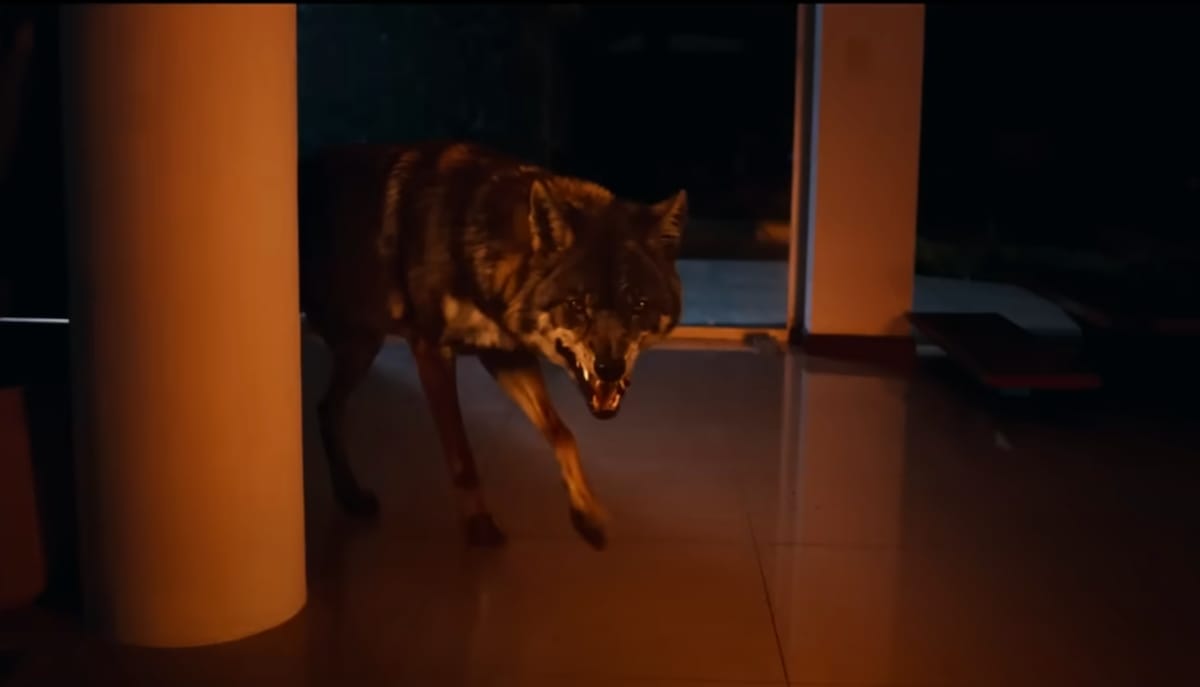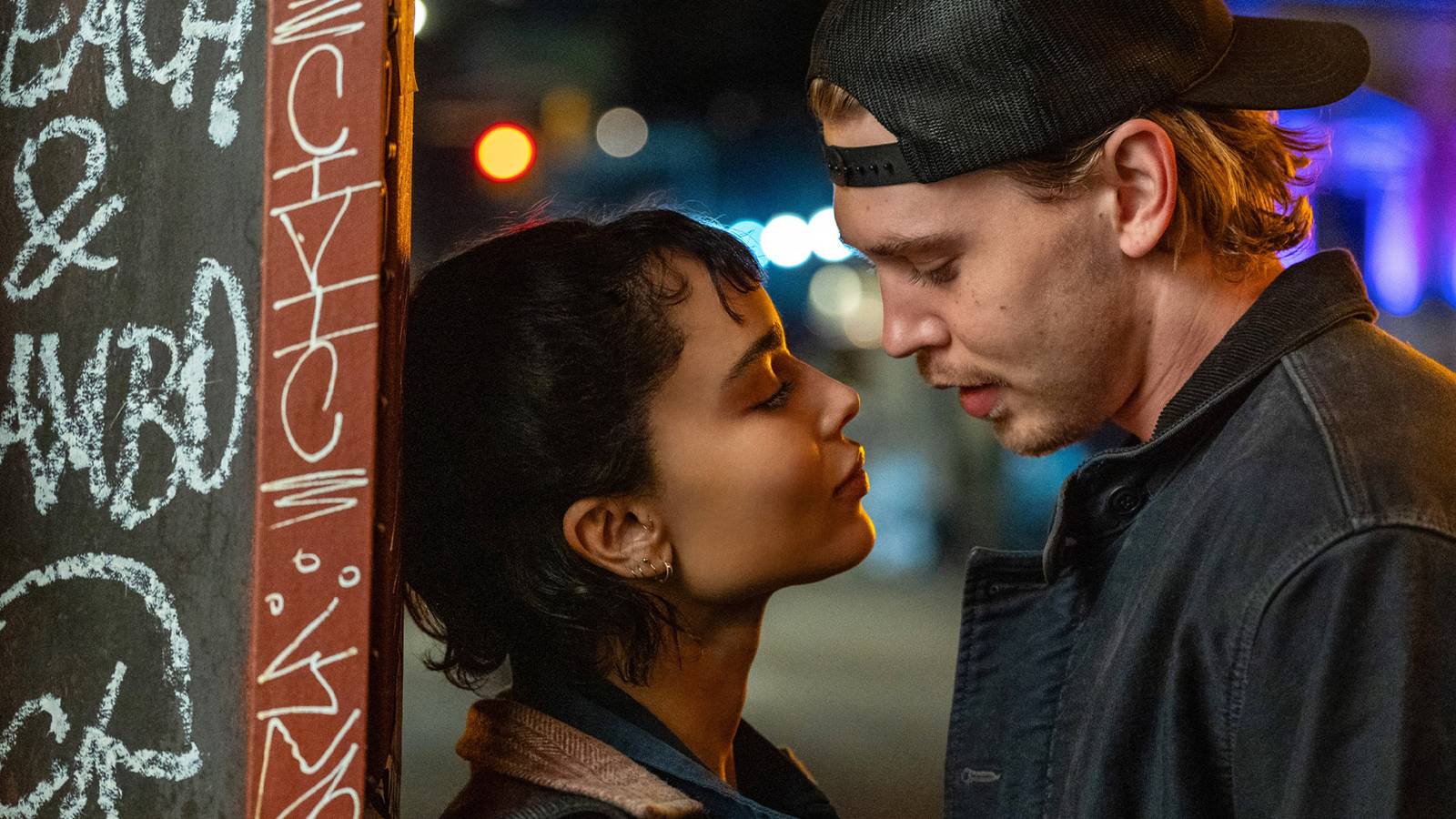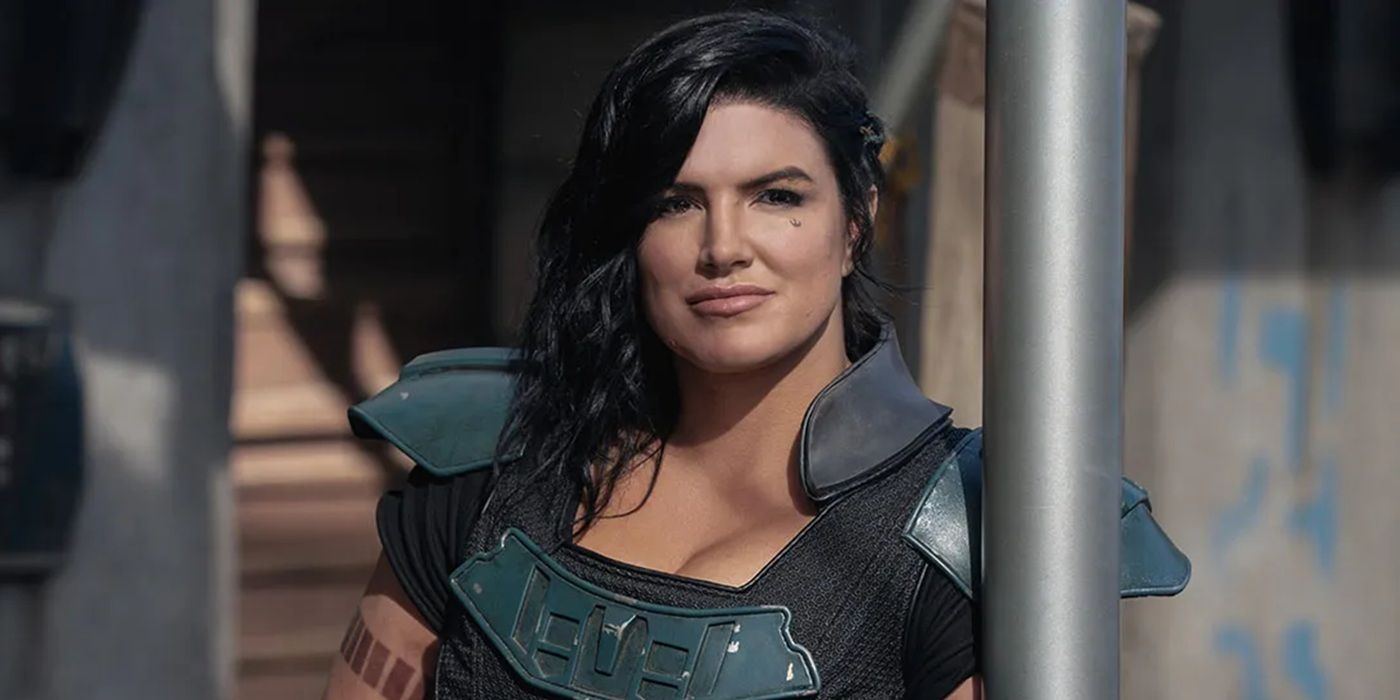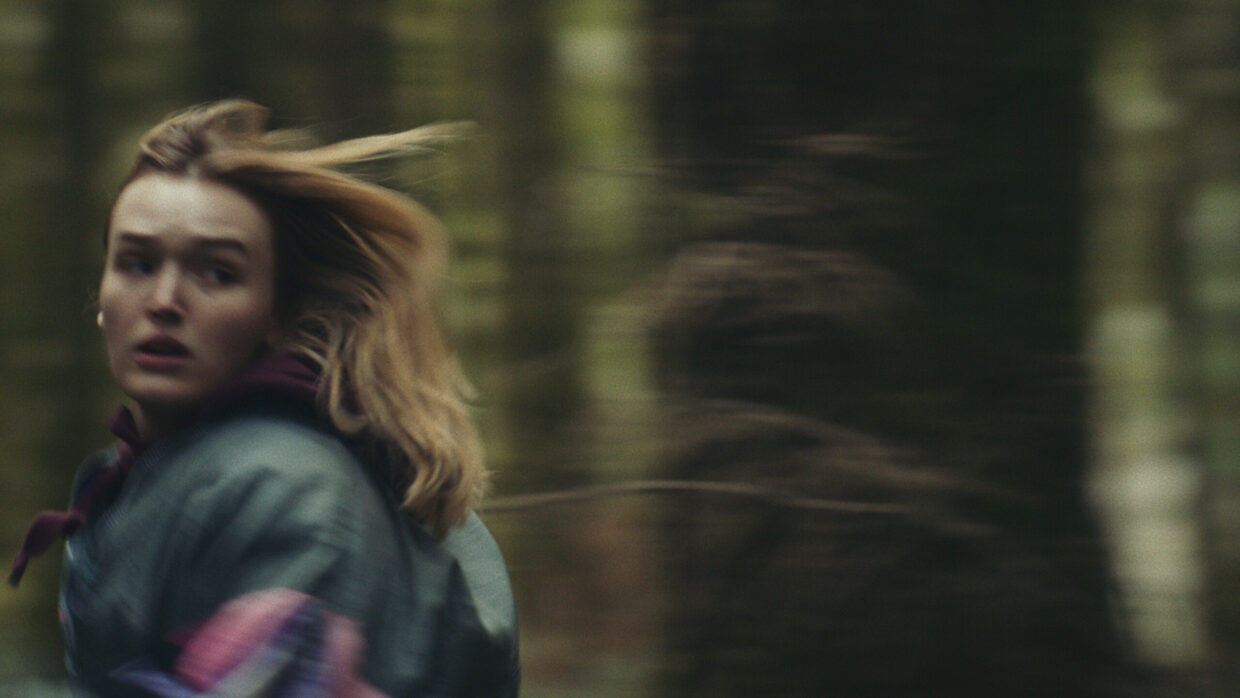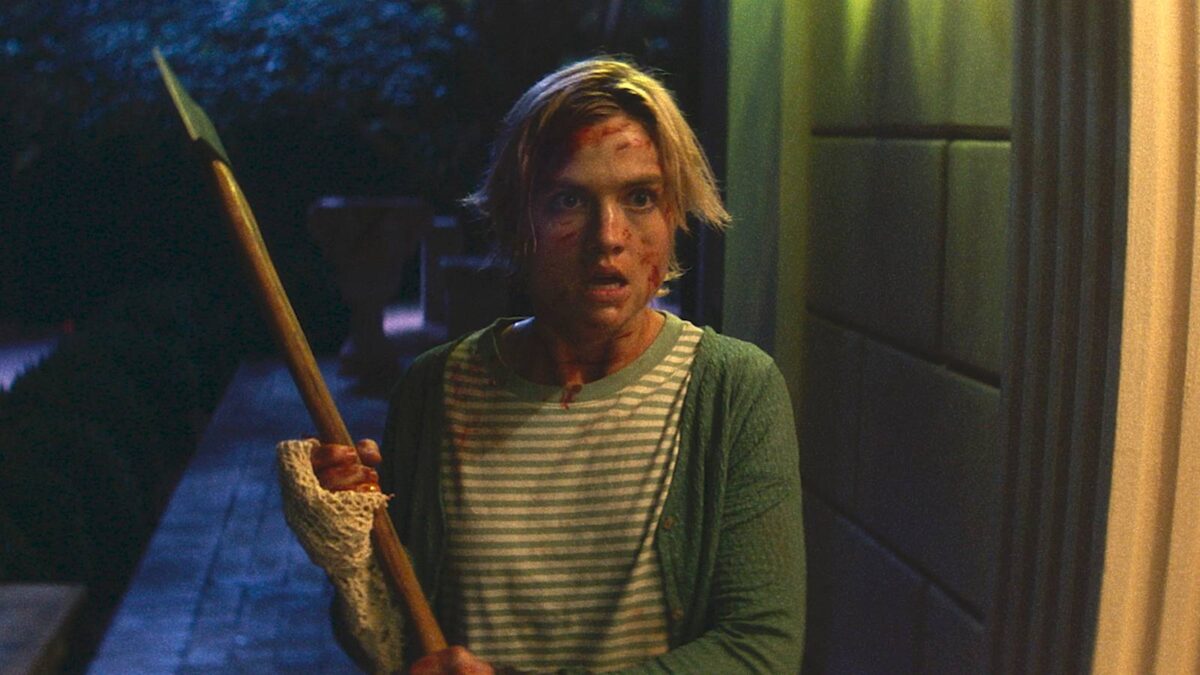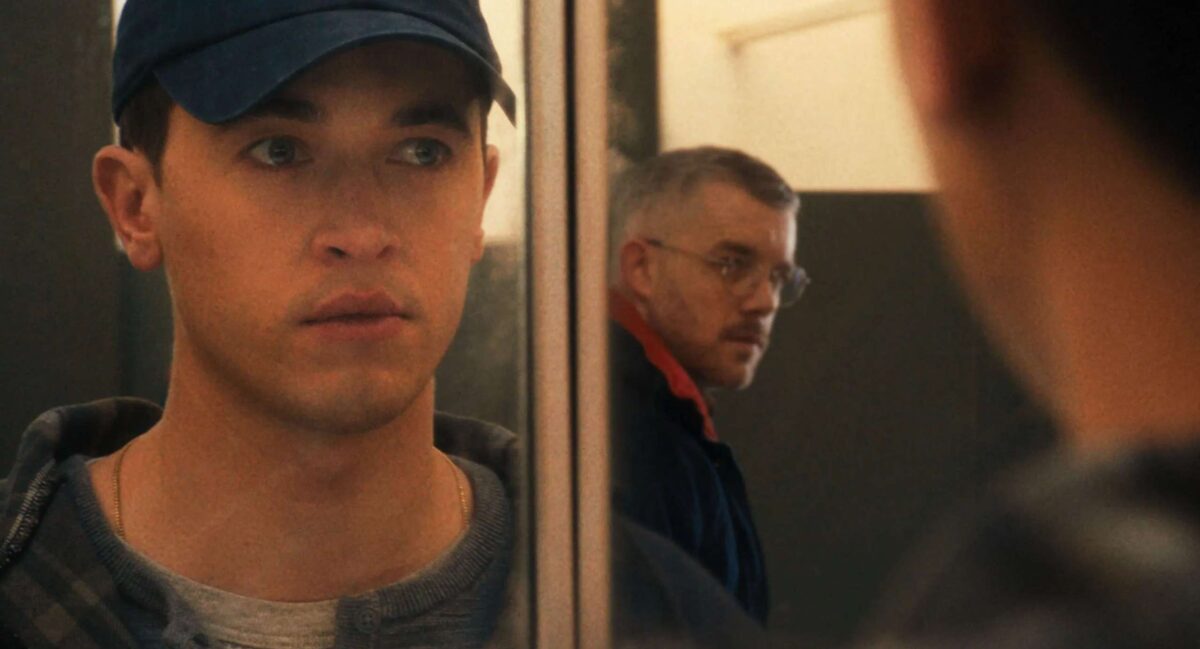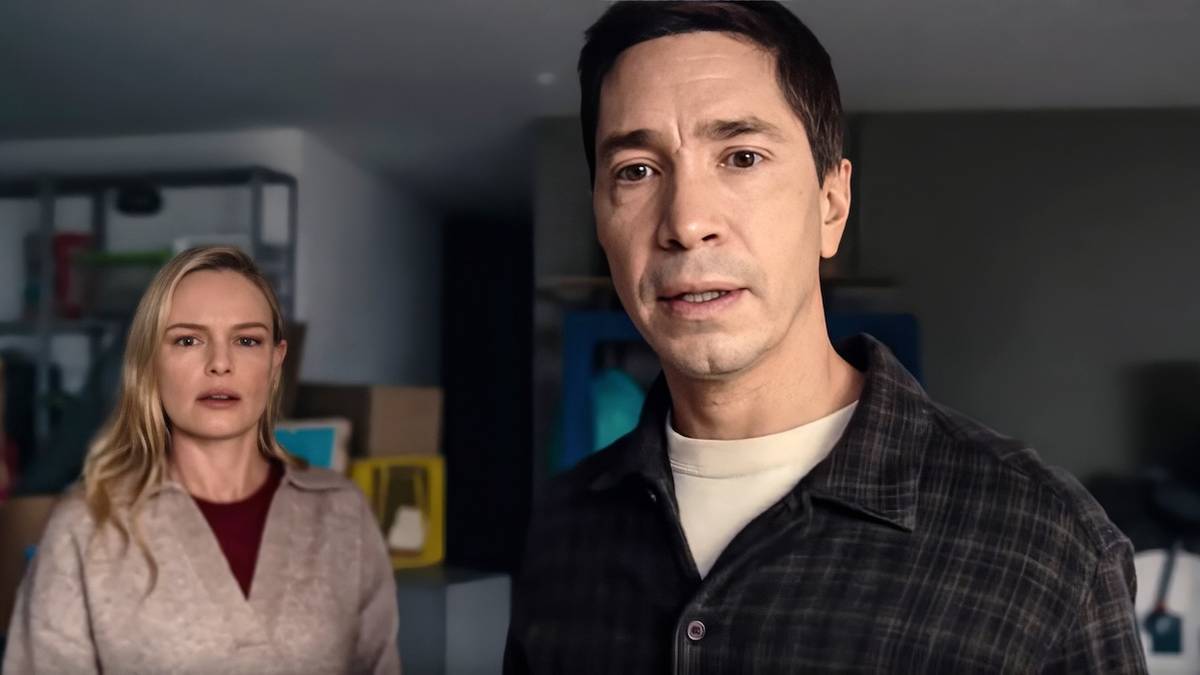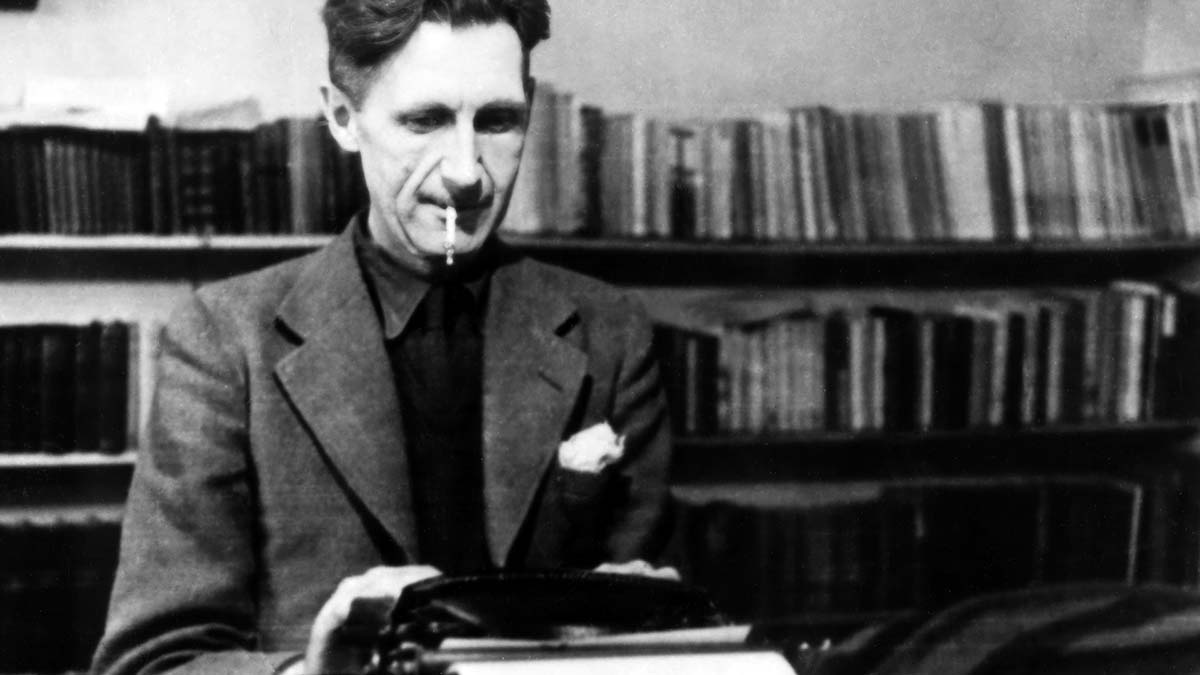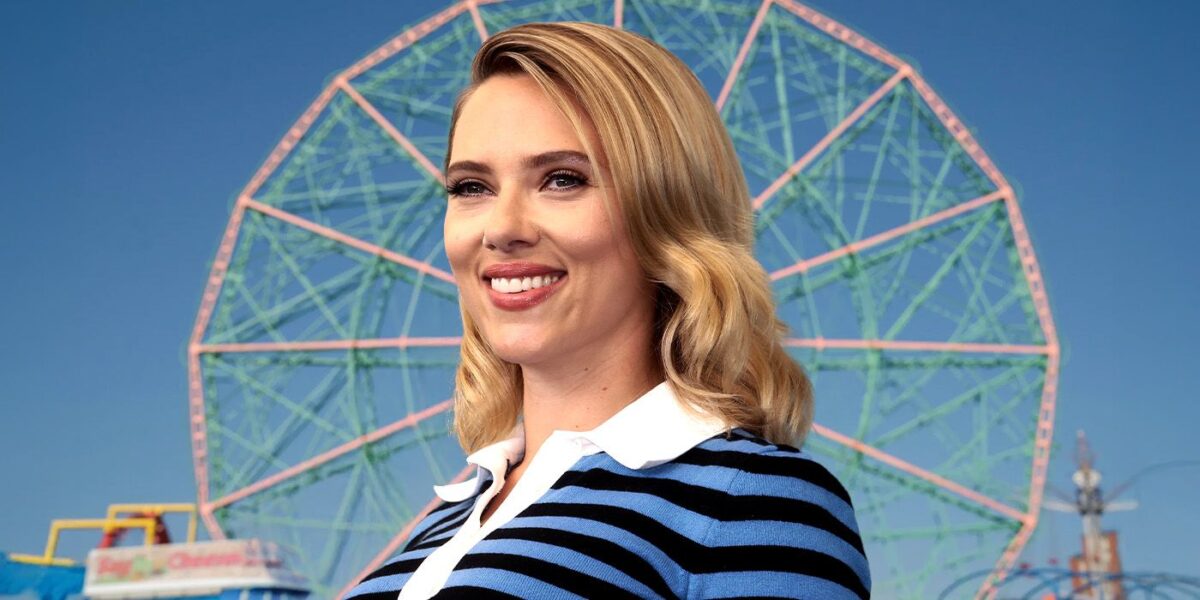
Scarlett Johansson on the Reaction to Her Directorial Debut at Cannes
May 28, 2025
Summary
Collider’s Steve Weintraub talks with Scarlett Johansson, June Squibb, and Erin Kellyman at the Cannes Film Festival 2025 for Eleanor the Great.
Johansson discusses her film influences, bringing heart and humor to a heavy script, and the audience reception.
Squibb and Kellyman share what it was like to experience the film with an audience, how the movie tackles age and grief, and more.
At this year’s Cannes Film Festival, Scarlett Johansson’s directorial debut Eleanor the Great brought its audience to tears. The world premiere of this heartfelt dramedy inspired a five-minute ovation for screenwriter Tory Kamen’s tale of humanity and all the complications that come with it.
The movie puts 94-year-old Eleanor Morgenstein (June Squibb) front and center as she moves states away from her longtime home with her late best friend (Rita Zohar) to live with her daughter (Jessica Hecht) in New York. Desperate for connection, Eleanor befriends a young journalism student (Erin Kellyman) after telling a story that went too far. As the two bond, they move further and further from the truth, and Eleanor has no choice but to set things right.
During a group interview with other reporters, Collider’s Steve Weintraub had the pleasure of speaking with Johansson, Kellyman, and Oscar-nominated Squibb. The co-stars share what it was like to experience the film with a crowd, and Squibb discusses how it feels leading a film at 90. Johansson discusses the heart and humor of the script, sharing her directorial debut with Cannes, her filmmaking influences, and whether she intends to remain behind the camera.
Scarlett Johansson’s Directorial Debut Blends Its Heart With Humor
Not lightening the emotional weight with humor was never an option.
Image Via Sony Pictures Classics
INTERVIEWER: In the last few years, we have had so few films that are made by young people dealing with the Jewish experience and the Holocaust experience, like Jesse Eisenberg and Lena Dunham. Can you explain the trend, and what did you learn from your own Jewish Holocaust experience?
SCARLETT JOHANSSON: I cannot explain the trend. When I read Jesse Eisenberg’s project, I thought, “Oh no, I hope it’s not so similar to what we’re making,” but then I saw it was not so similar. Certainly, Jewish identity is one of the important parts of the film. It’s also the importance of the survivors’ stories being passed on and who has the right to do that, and who has the right to tell our story when we’re gone. It’s something I think we’re all grappling with. It’s in the zeitgeist, that question.
But at the heart of the story, for me, or what I’ve noticed as I’ve worked on it and watched it 400 times, is that Eleanor’s character makes this mistake that’s kind of an impossible thing, and really, almost unforgivable, but then hopefully the audience has the experience of understanding, throughout, that it’s an act of love and it’s an act that’s borne out of grief and loss and loneliness and love. She says at the end, “I have to tell her story because she can’t,” and she urgently feels that. Hopefully, the audience is able to empathize with her at the end of the film. That’s, to me, the most valuable part of it.
This film is also an antidote to ageism. I just love the way she carries herself with such a dignity and also her appetite for life. Can you both comment on that aspect? We need that. She’s over 90. We have to celebrate that fact and not the other way round.
JUNE SQUIBB: When I read it, I thought, “What a great way to say I’m 90, I’ve had this life…” I think it’s so important. I think people are now interested in aging because I’ve done two films in my 90s, and people were interested! I think that’s wonderful. I think that we’re doing something really great by allowing me to do a lead in this film. But I think you certainly understand it, without a doubt.
JOHANSSON: Oh, definitely. To me, the moments where you see Eleanor’s internal life, that you see that she’s grieving, she’s guilty, she’s lonely, she’s disappointed, and then also experiences compassion. When she’s first shown into the support group, and Vera says, “Oh, you’re very kind,” she needs to hear that because she’s also an impossible person. [Laughs] With her daughter, she’s so tough. She really is so tough. It’s important to see all of that internal life, too.
Image via TriStar Pictures
I would like to ask you about humor. The movie is very touching, but has a lot of humor. How important is humor in your in your life? Do you think that nowadays humor is like a weapon against what we are living?
JOHANSSON: Oh, yeah. If you don’t laugh, you cry. The script was very funny, and June obviously has an insane comedic timing. That was like a gift. For me, it would be impossible. My husband’s a comedy writer, and I couldn’t imagine ever being with somebody who wasn’t funny. I grew up in a very funny household. My dad is Danish and has a very dry sense of humor, and my mom is Jewish, so that’s culturally a big part of our identity. It’s certainly a certain kind of humor, and growing up in New York, that’s another layer of it, of course. So, I see the ironic humor, also, in terrible things.
To come back to the movie, to the idea that sometimes it’s okay to tell lies if it’s to speak truth, is it also the role of cinema to tell lies to speak truth?
JOHANSSON: I don’t know. It feels like the truth to me. That’s the thing. I think actors are living in such truthful moments when it works, that it really isn’t necessarily a lie.
SQUIBB: I think we were all after that, too. The three of us, certainly, that’s what we want to end up.
‘Eleanor the Great’ Even Made the Cast Cry on Set
“It’s just so cathartic.”
Image via Sony Picture Classics
COLLIDER: I just want to start by saying congratulations on the movie. I don’t appreciate that you made me cry. I actually want to talk a little bit about that. The people around me were sobbing at the end. I’m not going to deny it, I totally cried. What was it like for you having your film premiere here and having such a strong emotional reaction from so many people? For the two of you, what was it like watching the finished film for the first time, and what emotions were you experiencing while watching it?
ERIN KELLYMAN: First of all, I thought it was beautiful, and June’s performance is obviously incredible. I think there were moments, which were really interesting, actually, when I was in the moment as Nina, especially towards the end, when the truth comes out. I remember just being so angry at her, and I was just out of there because I was just in Nina’s head. Then, watching it back and seeing June’s reaction, the way that you scream “Nina,” I was bawling, because I was completely out of it then. I wasn’t angry anymore because I’m Erin again, I guess. [Laughs] So, that was really interesting to see the difference in how I felt about your performance. I was just appreciating it, rather than being in it with you.
JOHANSSON: The script made me cry, and so I knew there would be potential for tears, of course. Then, being on set with these actors and Chiwetel [Ejiofor] and Jessica [Hecht], there were so many moments where people at the monitor were crying. Then, to cut it together — I’ve seen it a bajillion times, and it still makes me cry. It touches me in different moments. Receiving Dustin [O’Halloran]’s music, I didn’t even have to watch the movie. Just his music would move me to tears. I love to cry in movies. When I was younger, I was a teenager, I used to stop myself from crying, and it was so painful. I think the greatest physical pain is holding in a cry. It hurts so much. Then, at some point in my life, I was like, “What am I doing? I’m just going to let loose and cry in this theater.” It was so liberating. It feels so good to cry in a theater with a whole bunch of people.
I remember seeing Up, that first scene in Up, and looking across, because I was like, “Oh my god, I’m audibly sobbing,” and it’s five minutes into the movie, and I was like, “Oh, everybody else is audibly sobbing!” [Laughs] And how amazing to be able to have that as a collective experience? It’s just so cathartic. I had never seen it with an audience that wasn’t related to me in some way, and so to be in the theater with everybody, and then to have the reception and be with these actors and see everybody’s faces, it was just surreal, but also felt great, like a big release. It was amazing.
SQUIBB: It was interesting to see it there because I didn’t know if it was going to be funny or not, whether people were going to get the moments that were light. Were they going to laugh? I think we were all amazed at that because you heard it. You heard the audience laughing. That was great because you’re never sure. You don’t know.
JOHANSSON: Well, I also wanted to say people didn’t laugh when they weren’t supposed to, which is almost better. [Laughs] You could hear people, when you tell the story, they were like, “No!” And then when Jessica comes in at the end, you’re like, “Oh god! What’s going to happen?” So, that was fun.
Image via Sony Picture Classics
Scarlett, you’ve worked with many great directors. Did you steal from any? And is there anything about the Jewish experience that you were influenced by?
JOHANSSON: People I stole from? Some people have great references, and I’ve worked with people that have great references, where they say, “This is the Bergman moment,” or this or whatever…I don’t think I had, really, so many references. Not intentionally. But the script did remind me a lot of movies that I love that are specific to independent films from the ‘90s and early aughts that are very New York-centric, whether it’s Living Out Loud or like Crossing Delancey or some Woody Allen films. It felt like the potential for that stuff. What’s so unbelievable is that when I showed it to Noah, the first thing he said was, “It reminded me of Crossing Delancey.” I was like, “Oh my god!” I was so pleased. I never would have thought he would make the connection of that.
Will Scarlett Johansson Return to Acting?
“I guess we’ll see.”
Image via Sony Picture Classics
How has this whole process been for you, because you’ve had to express yourself creatively in a different kind of way? You need to have your vision, your clear point of view — and you do. Was it nerve-wracking or overwhelming? I have the impression that sometimes actors, when they turn into directors, they are judged in a different kind of way, which is not always fair.
JOHANSSON: I’m as used to that as you can be, I guess. You get held to different standards, which is okay. I can shoulder that. I think making something that is moving, to me, is so gratifying. If you can be in the theater and I make you cry, that’s the most gratifying thing beyond whatever else comes out of it.
The film shows this great female friendship. How important is it to talk about female friendship? It’s unusual in cinema these days to see a friendship like this. This is a beautiful female friendship.
SQUIBB: We cared for each other, too. We had met each other. We lived in the same apartment building. I felt I knew Erin before we ever started shooting in a way, but everything deepened. I loved the montage when we’re just walking around. Dialogue comes up, but it’s obviously not happening at the time, and I love that — just walking around with Erin in New York and talking. That’s what we did. So, it was a joy. It’s not always a joy, but shooting with her and doing our scenes certainly was. I love the diner scene where we’re blowing straws at each other, and all that, and the food. Everything. I just like that scene a lot.
With making your first feature film, will you continue as an actress, or is it a new beginning for you?
JOHANSSON: I don’t know. I’m not sure. I guess we’ll see. My intention is to work on projects I would go and see, whether they’re like Jurassic World or this film. The commerciality of things is also important to me, too. Would audiences want to see this, too? Is this generally interesting? Those are things I look for and focus on and care about. So, we’ll see, I guess. I’m certainly still an actor for higher — I want that to be widely printed.
Eleanor the Great doesn’t have a release date but you should expect it later this year.
Eleanor the Great
Release Date
May 20, 2025
Runtime
98 Minutes
Writers
Tory Kamen
Producers
Trudie Styler, Celine Rattray, Keenan Flynn, Jonathan Lia, Charlotte Dauphin, Kara Durrett, Jessamine Burgum
Publisher: Source link
Erotic Horror Is Long On Innuendo, Short On Climax As It Fails To Deliver On A Promising Premise
Picture this: you splurge on a stunning estate on AirBnB for a romantic weekend with your long-time partner, only for another couple to show up having done the same, on a different app. With the hosts not responding to messages…
Oct 8, 2025
Desire, Duty, and Deception Collide
Carmen Emmi’s Plainclothes is an evocative, bruising romantic thriller that takes place in the shadowy underbelly of 1990s New York, where personal identity collides with institutional control. More than just a story about police work, the film is a taut…
Oct 8, 2025
Real-Life Couple Justin Long and Kate Bosworth Have Tons of Fun in a Creature Feature That Plays It Too Safe
In 2022, Justin Long and Kate Bosworth teamed up for the horror comedy House of Darkness. A year later, the actors got married and are now parents, so it's fun to see them working together again for another outing in…
Oct 6, 2025
Raoul Peck’s Everything Bagel Documentary Puts Too Much In the Author’s Mouth [TIFF]
Everyone has their own George Orwell and tends to think everyone else gets him wrong. As such, making a sprawling quasi-biographical documentary like “Orwell: 2+2=5” is a brave effort bound to exasperate people across the political spectrum. Even so, Raoul…
Oct 6, 2025
